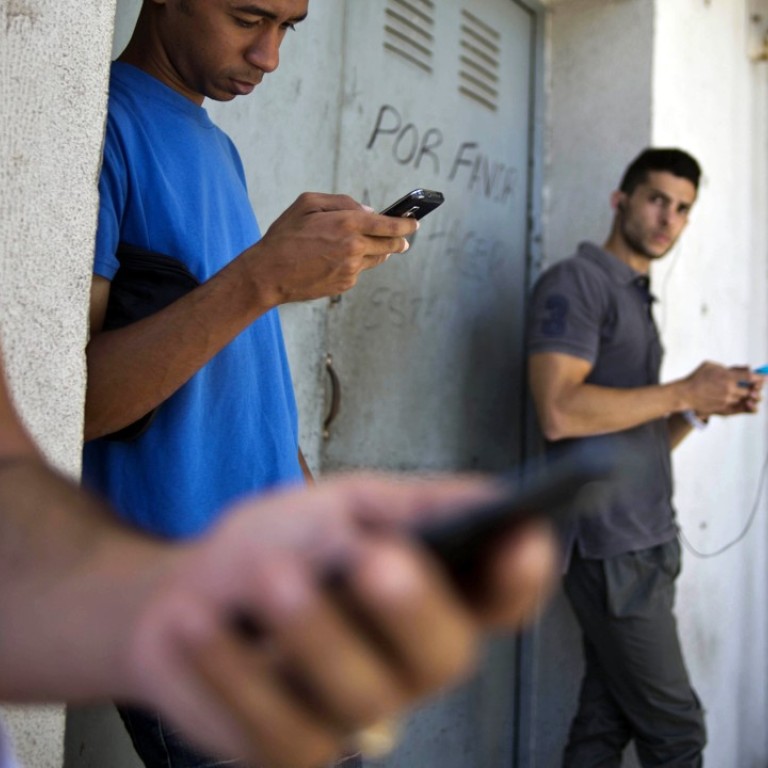
Cuba authorises sending text messages to US phones
Cuban telecommunications monopoly Etecsa on Friday began allowing Cubans to send text messages to the United States, lifting a restriction which has long frustrated people.
“From December 8, 2017, you will be able to send text messages from any mobile phone internationally to any mobile phone in the United States,” the firm said on its website.
It also stressed that the US$0.60 charge for sending messages to the US is “similar to other international destinations”.
More than 2 million Cubans live in other countries. With most in the United States, the lack of a direct messaging service has been a long-time complaint.
Web-based phone and messaging services are generally not an option in a country where internet access is highly restricted.
The announcement comes at a delicate time for the two countries, which re-established diplomatic relations in 2015 after half a century of tension.

After the historic reconciliation, Washington eased the embargo in place since 1962, and authorised US telecommunications companies to sell their services in Cuba.
In February 2015, Etecsa and the United States’ IDT Domestic Telecom reached an agreement which set the ball rolling on the first direct telecommunications connection between Cuba and the US – although it was initially only for landline telephone calls.
However, ties between the two countries have since deteriorated over alleged “acoustic attacks” against US diplomats in Havana.
President Donald Trump in November also announced the implementation of new economic sanctions and travel restrictions on the island.

.png?itok=arIb17P0)